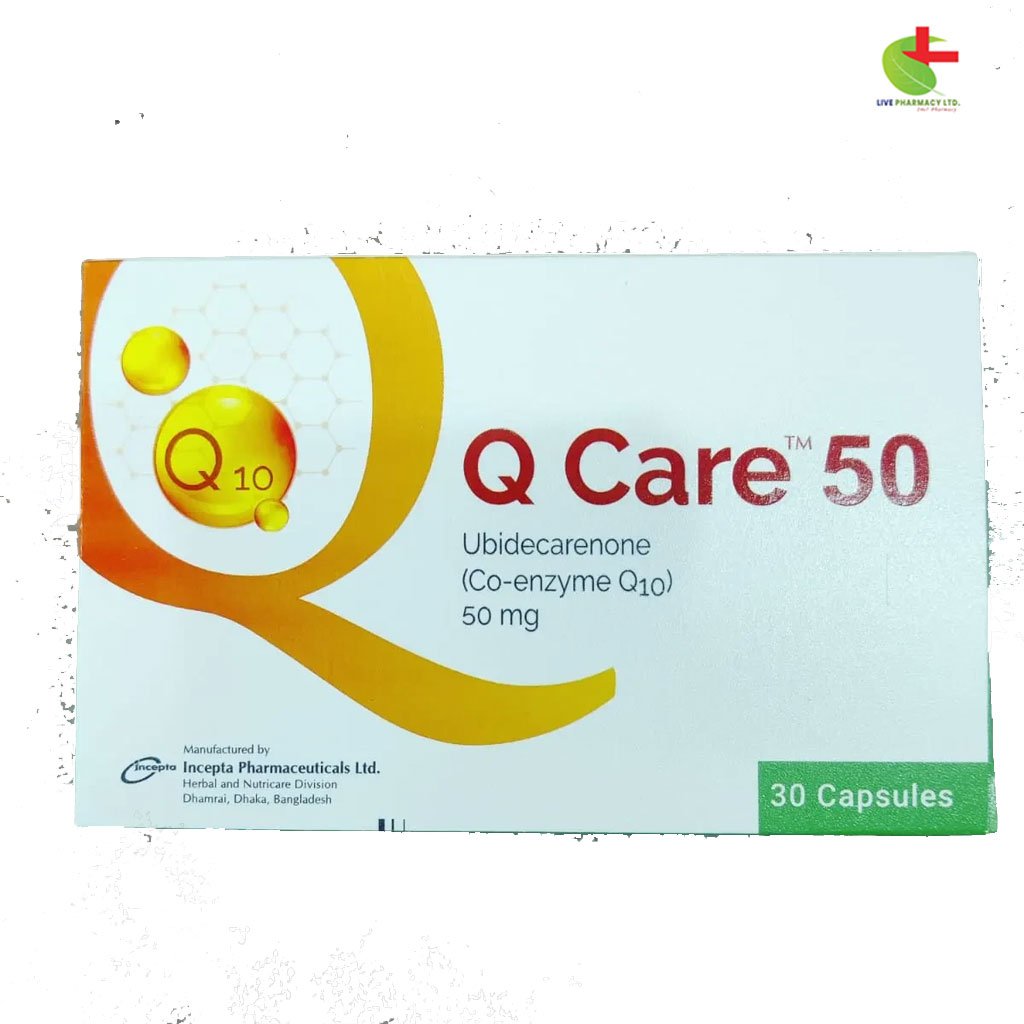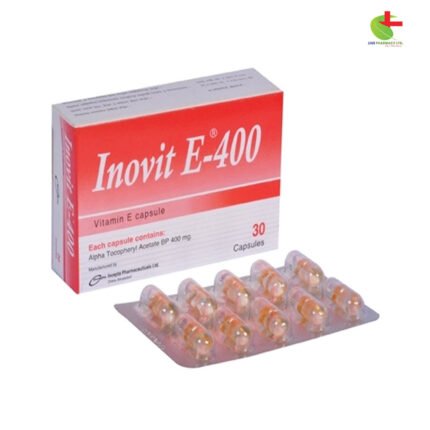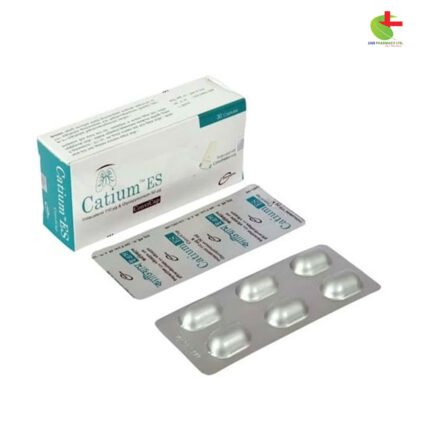Q Care 50
200.00৳ Strip(10)
- Q Care supports reproductive health, addressing both male and female infertility.
- It aids in managing neurological disorders, including Parkinson’s and Alzheimer’s.
- Beneficial for cardiovascular health, such as hypertension and heart failure.
- Also supports general wellness in conditions like diabetes, asthma, and thyroid disorders.
- Contains Coenzyme Q10 to enhance cellular energy and antioxidant defense.
 Brand
Brand
|
Incepta Pharmaceuticals Ltd |
|---|---|
 Generics
Generics
|
Coenzyme Q10 [Ubidecarenone] |
 Type
Type
|
Capsule |
Indications
Q Care is recommended for use in:
Infertility
- Female Infertility: Useful in cases like poor ovarian reserve and polycystic ovary syndrome (PCOS).
- Male Infertility
Neurological Disorders
- Myopathy
- Ataxia
- Genetic Neuromuscular Disease
- Migraine
- Muscular Dystrophy
- Parkinson’s Disease
- Alzheimer’s Disease
Cardiovascular Conditions
- Congestive Heart Failure (CHF)
- Hypertension
- Angina
- Cardiomyopathy
- Heart Protection During Surgery
Other Applications
- Periodontal Gum Disease
- Diabetes
- Exercise Performance
- Cancer
- Asthma
- Thyroid Disorders
Please consult a registered physician before use.
Pharmacology
The USP classifies Coenzyme Q10 (also known as Ubidecarenone) as a fat-soluble, vitamin-like compound found in every cell of the body. Ubidecarenone plays a crucial role in cellular energy production, aiding the electron transport system within mitochondrial membranes to generate ATP. Cells with high metabolic activity, such as those in the heart, immune system, skeletal muscles, and gums, have particularly high requirements for Ubidecarenone. As individuals age, Ubidecarenone levels naturally decline, potentially contributing to various age-related health issues.
Being lipophilic, Ubidecarenone absorbs more effectively when taken with foods rich in fats. Once ingested, it is absorbed through the small intestine into the lymphatic system, processed by the liver, and then distributed into the bloodstream, concentrating in various tissues, particularly those with high metabolic demand. Around 60% of an oral dose is excreted through feces, with the main elimination route being bile.
Dosage & Administration
- Coenzyme Q10 Deficiency: 150 mg daily
- Mitochondrial Disorders: 150-160 mg daily or 2 mg/kg/day
- Heart Failure (Adults): 100 mg per day in 2-3 doses
- Post-Myocardial Infarction: 120 mg daily in 2 doses
- High Blood Pressure: 120-200 mg per day in 2 doses
- Isolated Systolic Hypertension: 60 mg twice daily
- Migraine Prevention: 100 mg three times daily
- Parkinson’s Disease: 300-2400 mg daily in 3-4 doses
- Male Infertility: 200-300 mg daily
- Muscular Dystrophy: 100 mg daily
Dividing the daily dose into smaller, multiple doses throughout the day may help minimize side effects.
Please consult a registered physician before use.
Interactions
- Statins: Statin drugs can reduce the body’s natural synthesis of Ubidecarenone; supplementation may help restore levels without affecting statin effectiveness.
- Warfarin: May reduce warfarin’s effectiveness.
- Beta-Blockers: Some, like propranolol, may inhibit Ubidecarenone-dependent enzymes.
- Antidiabetic Medications: May improve glycemic control in certain type II diabetics, potentially requiring dose adjustments of diabetes medications.
- Doxorubicin: May reduce the cardiotoxic effects of doxorubicin.
Contraindications
Coenzyme Q10 is contraindicated in individuals with known hypersensitivity to its ingredients. It should also be avoided by patients scheduled for surgery within the next two weeks.
Side Effects
Coenzyme Q10 is generally safe for most adults. However, mild side effects may include digestive discomfort, loss of appetite, nausea, vomiting, diarrhea, and, in some cases, skin rash.
Pregnancy & Lactation
Avoid use during pregnancy and breastfeeding.
Precautions & Warnings
Coenzyme Q10 may lower blood sugar levels, so diabetic or hypoglycemic patients should use it cautiously. Additionally, it may reduce blood pressure, so patients with low blood pressure or those on blood pressure medications should take it under medical supervision.
Therapeutic Class
Herbal and Nutraceuticals, Supplements & Adjuvant Therapy
Storage Conditions
Store in a dry, cool place, away from light and heat. Keep out of reach of children.













Reviews
There are no reviews yet.